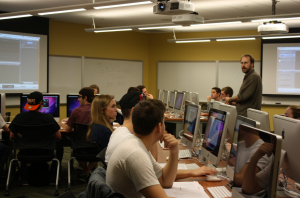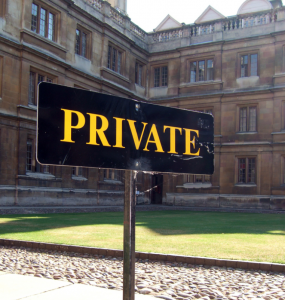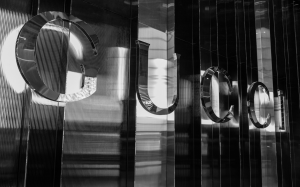‘Thank for all for being here. Now pay me”
I’m a big believer in the value of education, which is why I’ve spent so much time educating people (in forums other than here and about topics other than psychology as of late, but I’m always scratching that same itch). As anyone who has been through an education system can tell you, however, not all educators provide the same amount of value. Some teachers and professors have inspired me to reach for new heights while others have killed any interest in a subject I might have had. Some taught me valuable and useful information while others have provided active misinformation. Naturally, if we have the option, we’d all prefer the former type of teacher – the good ones. The same holds true for most parents as well: given the option, they’d prefer their children had access to the best teachers over the worst ones, all else being equal. This is all working under the assumption that good teachers provide better opportunities for their students in the future. I don’t think we’re breaking any new ground here with these premises and I think they’re all sound. This drives students and parents to seek out the best teachers they can find.
Quantifying someone’s quality as an educator is difficult, however. This leads people to fall back on the things they can measure more easily as proxies for educator quality, like student outcomes. After all, if a student cannot perform tasks related to what they were just taught, that’s a reasonable indication that the teacher might not be great at their job. If only matters were that simple we’d have better teachers. They aren’t, though, since such a measure conflates student quality with teaching quality. Put the best teacher in a room of students with an IQ below 80 and you’ll see worse outcomes in terms of student performance than a poor teacher instructing a class with an IQ above 120. Teachers can help you reach for the stars; they just can’t bring the stars to you.
Nevertheless, people do use student outcomes as a proxy for education quality and, as it turns out, students at private schools tend to outperform those at public ones. With limited information available, many people might come to believe that private schools give their children a better education and invest large amounts of resources to ensure their children go there. Perhaps we could improve student performance if we could just send more children to private schools. It’s an interesting suggestion.
“No poor people allowed…until now”
Let’s get the most important question out there first: why would we expect that a private education is better than a public education? The reason this question matters is because the primary difference between these two sources of education is simply the source of funding: private education is funded privately; public education publicly. One might wonder what the source of the funding has to do with the quality of education received, and rightly so. As far as I can tell, that answer should be that funding source per se is largely irrelevant. If you’re buying a new phone, the quality of phone you receive shouldn’t be expected to change on the basis of whether you’re using your money or the government’s money to make the purchase. The same should hold true of education.
As such, if you’re wondering whether private or public education is better, you’re not really looking at the right variables. Whatever factors are important for a good education – class sizes, instructor quality, instruction method, and so on – should be the same for both domains. So perhaps, then, private educations are better because more money allows people to purchase better teachers with better supplies and better methods. As the old saying goes, “you get what you pay for.” Presumably, this would result in children at private schools achieving more in terms of learning and outperforming their public-schooled peers. It might also mean that if public schools just received more money to purchase more materials, space, or better teachers, you’d see student performance begin to increase
That said, this logic usually only holds true to a point. There are diminishing returns on the amount of quality you receive per extra dollar spent. A $5 shirt might be of lower quality than a $30 shirt, but is that shirt six-times better? Is that $120 designer shirt four-times better still? At some point, spending more doesn’t necessarily get you much in the way of a better product.
Hey you tried paying even more than that?
This brings us nicely to the present paper by Pinata & Ansari (2018) who examined a sample of approximately 1100 children’s education-related achievements over time (from birth to age 15). While the paper isn’t experimental in nature, the authors sought to determine to what extent children’s enrollment in private schools affected their performance, as records on their school attendance were available (among other measures). Whether these children attended any private school (yes/no) as well as how much private school they attended were used to predict their ninth-grade performance on a number of standard metrics. These included cognitive, literary, and math skills, as well as working memory abilities. Just to be thorough, they also asked these children how competent they felt in a couple academic domains. The authors also assessed children’s behavioral problems – internal and external – and social skills to see if private school had an impact on those as well. Finally, a number of family variables were collected, including factors like birth weight, maternal employment and vocabulary, and race. In other words, factors unrelated to the public vs private schooling itself.
Turning to the results, when the authors were just trying to predict cognitive and academic performance from the amount of private school attended, there was a noticeable difference. Children who attended any private school tended to outperform those who only attended public school on most of the measured variables. The authors then conducted the same analysis, adding in some of those pesky family variables – like family income – which ended up reducing just about all of those relationships to non-significance, and this was true regardless of how long the children had attended private institutions. In other words, children who attend private school tended to do better than those who attended public school, but this might have very little to do with the schools per se.
While that finding might be interesting to some for reasons related to their finances, it interests me for a different reason. Specifically, at no point in the paper (or the comments/reactions to it) do the authors mention that maybe the difference in performance has to do with some kind of biologically-inherited potential. The ability to learn, like all things biological, is partially inherited. Smart parents tend to have smart children, just like tall parents tend to have tall children. Instead the focus on this paper (and the commentary) seems to revolve predominantly around controlling for the monetary factors.
Let’s just print more money until everyone’s a genius
Maybe richer parents are able to provide things that poorer parents cannot, and those things lead to better academic performance. Perhaps that’s true, but it does seem to gloss over a rather important fact: wealth is not distributed randomly. Those who are able to achieve higher incomes tend to do so because they possess certain skills that those who fail to achieve high income lack. These could be related to intelligence (factors like good working memories and high IQ) or personality (higher in agreeableness, conscientiousness, or other important factors). This is a long-winded way of saying that people who can successfully complete complicated jobs and show up consistently probably out earn those who mess up everything they touch, frequently miss work, or become distracted by other goals regularly. Each group also tends to have children which inherit these tendencies.
We might expect, then, that parents who have lots of money to spend on an expensive private education are higher-performers, on average; that’s why they have so much extra cash and value spending it on what they think is a good education. They’re also the same kind of parents who are likely to have children who are higher performers, because the children genetically resemble them. This would certainly explain the present set of findings.
When people have different biological performance ceilings the best teachers might help students reach those ceilings without changing where they reside. Past a certain point, then, educator quality may fail to have a noticeable effect. Let’s put that in a sports example: a great coach may make his players as good as they can be at basketball and as a team working together, but he can’t coach them into being taller. No amount of money can buy that ability in a coach. Conversely, some people are likely to succeed even despite a poor education simply because they’re capable enough on their own that they don’t need much additional guidance. A poor teacher to them is simply white noise in the background they can ignore as they achieve all on their own.
“Can you please shut up so I can get back to being great?”
All of this is not to say that educators don’t vary in quality, but it could be the case that the distribution of that quality is at least partially (perhaps even largely or entirely) independent of money at the moment. Maybe teachers are being hired on the basis of things that have little to do with their ability to provide quality education. In higher education this is most certainly the case, where publications and the ability to bring in grant money look appealing.
There is also the lurking matter of how peer quality influences the education of other students. A healthy portion of school life for any child involves managing the social world they attend school in. Children transferring into one school from another – private or public – find themselves faced with the prospect of navigating a new social hierarchy, and that goal tends to distract from education. Similarly, children who find themselves in a school where their peers don’t value education may not put learning at the top of their to-do list, as it affords them little social mobility (at least in the short term). It’s also possible that even poor-performing children will find little motivation to improve when you surround them by high-performing children if the gap between them is too wide. Since they can’t improve enough to see social gains from it, they may disengage from education and pursue other goals.
It’s not like the only thing that can change between schools – public or private – is educator quality or the amount of money they have for books. Many other moving parts are at work, so simply shuffling more children into private schools shouldn’t be expected to just improve outcomes.
References: Pinata, R. & Ansari, A. (2018). Does attendance in private schools predict student outcomes at age 15? Evidence from a longitudinal study. Educational Research, DOI: 10.3102/0013189X18785632





